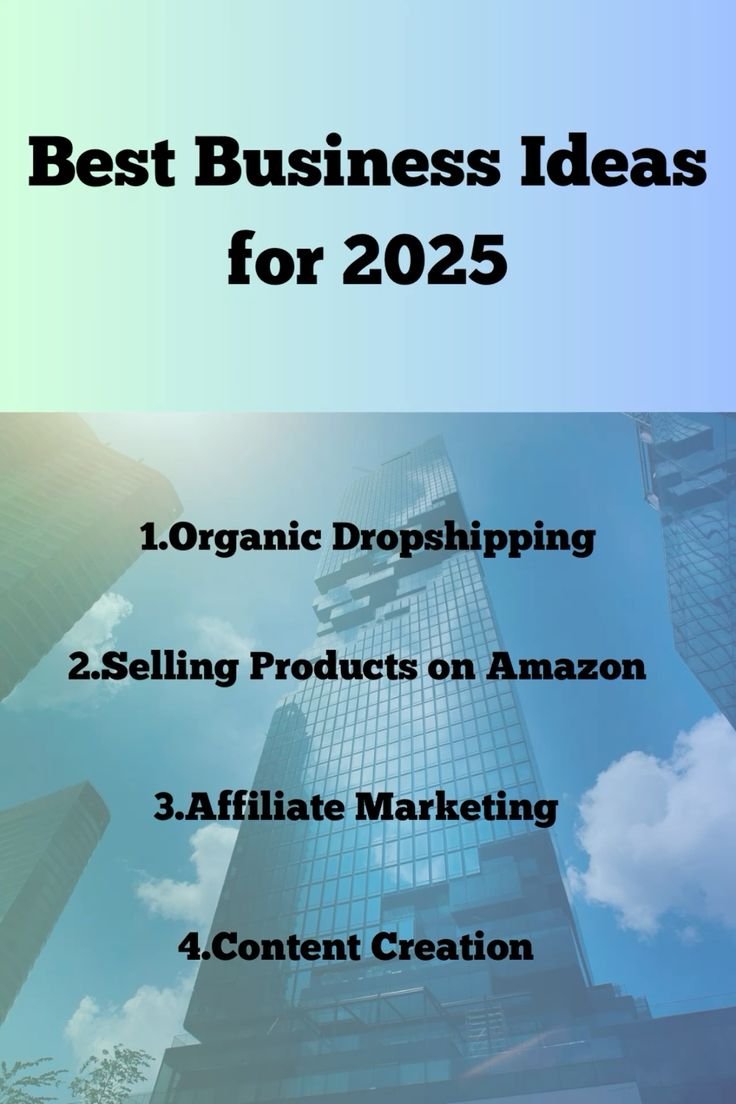Scaling a business is one of the most exciting yet challenging steps in entrepreneurship. As your business grows, the strategies you initially used to sustain it may no longer suffice. In 2025, with ever-evolving market dynamics, it’s essential for entrepreneurs to adopt effective scaling strategies to ensure long-term growth and success. This article outlines proven growth tactics that will help entrepreneurs scale their businesses, leveraging technology, data, and strategic planning.
1. Focus on Building a Scalable Business Model
The foundation of scaling any business lies in the ability to replicate its success without proportionally increasing costs. A scalable business model allows you to grow your business sustainably, without running into operational bottlenecks or resource constraints.
- Key Developments: In 2025, digital business models such as Software as a Service (SaaS), subscription-based services, and digital products offer scalable solutions. These models allow businesses to serve a growing customer base without significant increases in costs.
- Why It Matters: Having a scalable model is crucial for sustained growth. It allows you to expand your reach and revenue while maintaining efficiency, making it easier to manage your operations as your business grows.
2. Leverage Technology and Automation
To scale effectively, technology and automation are non-negotiable in 2025. By automating repetitive tasks and integrating software tools, businesses can optimize their operations, reduce manual work, and focus on high-value activities.
- Key Developments: The adoption of artificial intelligence (AI), robotic process automation (RPA), and cloud-based solutions is increasing across industries. Entrepreneurs are using AI for tasks such as customer service (chatbots), personalized marketing, and predictive analytics.
- Why It Matters: Automation streamlines workflows, improves efficiency, and frees up resources for strategic decision-making. With the right tech stack, businesses can scale without overwhelming their teams or increasing operational costs.
3. Expand Your Customer Base with Targeted Marketing
Scaling a business involves expanding your customer base. In 2025, data-driven marketing strategies allow businesses to target specific audiences more effectively and increase their customer acquisition rates.
- Key Developments: Personalization in marketing is more advanced than ever. Platforms like Google, Facebook, and LinkedIn use AI algorithms to deliver hyper-targeted ads based on user behavior, preferences, and search history. Content marketing and influencer partnerships continue to be effective for reaching new audiences.
- Why It Matters: Targeted marketing ensures that your business reaches the right people, increasing conversion rates and boosting revenue. By honing in on ideal customer profiles, businesses can minimize marketing spend while maximizing returns.
4. Invest in a High-Performing Team
One of the most significant challenges in scaling a business is managing a larger team. In 2025, building a team that is aligned with your company’s vision, culture, and goals is more critical than ever.
- Key Developments: Remote work continues to grow, offering businesses access to a global talent pool. Moreover, companies are investing in employee development, offering learning opportunities to upskill staff and encourage retention.
- Why It Matters: A highly skilled and motivated team drives your business forward. Investing in your people ensures that they are equipped to handle the challenges of growth and contribute meaningfully to scaling efforts.
5. Optimize Customer Experience
As businesses scale, maintaining high levels of customer satisfaction becomes more challenging. In 2025, entrepreneurs are using technology to enhance customer experience, ensuring that quality service is maintained even as the customer base grows.
- Key Developments: Tools like customer relationship management (CRM) software, live chat support, and feedback systems are making it easier to provide personalized experiences. Additionally, AI-powered chatbots and predictive analytics are helping businesses anticipate customer needs and respond in real-time.
- Why It Matters: Exceptional customer service leads to increased customer loyalty, referrals, and repeat business—key factors in scaling. Maintaining a strong relationship with customers ensures that your brand is trusted and valued.
6. Expand Your Revenue Streams
When scaling, it’s important to explore diverse revenue streams to ensure financial stability. Relying on a single revenue stream can make your business vulnerable to market fluctuations.
- Key Developments: Subscription models, product bundling, and partnerships are being used to create multiple income sources. Businesses are also tapping into new markets, launching complementary products, or adopting affiliate marketing to generate passive income.
- Why It Matters: Diversified revenue streams reduce the financial risk that comes with relying on one product or service. They provide businesses with stability, even when one segment of the business may be underperforming.
7. Streamline Operations for Efficiency
Efficient operations are crucial for scaling. In 2025, optimizing business processes—such as supply chain management, inventory control, and customer service—will allow businesses to handle larger volumes of work without increasing overhead costs.
- Key Developments: Cloud-based software solutions are making it easier for businesses to manage operations, track performance, and collaborate in real time. Lean practices and continuous improvement methodologies are being adopted to reduce waste and improve efficiency.
- Why It Matters: Streamlining operations ensures that you can scale your business without becoming bogged down in inefficiencies. By improving operational processes, you maintain high-quality service while controlling costs.
8. Form Strategic Partnerships and Collaborations
Strategic partnerships and collaborations are powerful tools for scaling. In 2025, businesses are increasingly collaborating with complementary companies to access new markets, share resources, and offer joint solutions.
- Key Developments: Co-branding, joint ventures, and influencer partnerships are becoming common growth strategies. Technology and supply chain partnerships allow businesses to leverage shared expertise and resources for mutual benefit.
- Why It Matters: Collaborating with other businesses provides access to new audiences, markets, and expertise. These partnerships help reduce risks, lower costs, and accelerate growth.
9. Use Data to Drive Decisions and Forecast Growth
Data is a crucial asset for scaling. In 2025, businesses that leverage data analytics to drive decisions and forecast growth are better positioned to scale effectively and remain competitive.
- Key Developments: Advanced analytics tools and machine learning models are helping businesses predict market trends, customer behavior, and sales forecasts. Businesses are using data to identify pain points, optimize product offerings, and refine their marketing strategies.
- Why It Matters: Data-driven decision-making allows businesses to make informed choices, mitigate risks, and capitalize on opportunities. With accurate insights, businesses can scale faster and more efficiently.
10. Maintain Financial Discipline and Cash Flow Management
As your business scales, managing cash flow becomes increasingly complex. In 2025, financial discipline is crucial for ensuring that your business remains profitable and able to reinvest in growth opportunities.
- Key Developments: Cloud-based accounting tools, automated invoicing, and real-time financial dashboards are improving cash flow management. Entrepreneurs are also turning to lines of credit, loans, and equity financing to fund expansion while maintaining financial stability.
- Why It Matters: Strong cash flow management ensures that you can fund operations, invest in growth, and weather financial challenges without jeopardizing your business. It also helps you maintain liquidity and avoid cash shortages.
Conclusion
Scaling a business is a complex but rewarding journey. By embracing a scalable business model, leveraging technology, investing in a high-performing team, and optimizing customer experience, entrepreneurs can navigate the challenges of growth. Additionally, expanding revenue streams, streamlining operations, and using data to drive decisions will ensure that your business is prepared to scale effectively in 2025 and beyond. With the right strategies in place, you can position your business for sustainable success and long-term growth.







